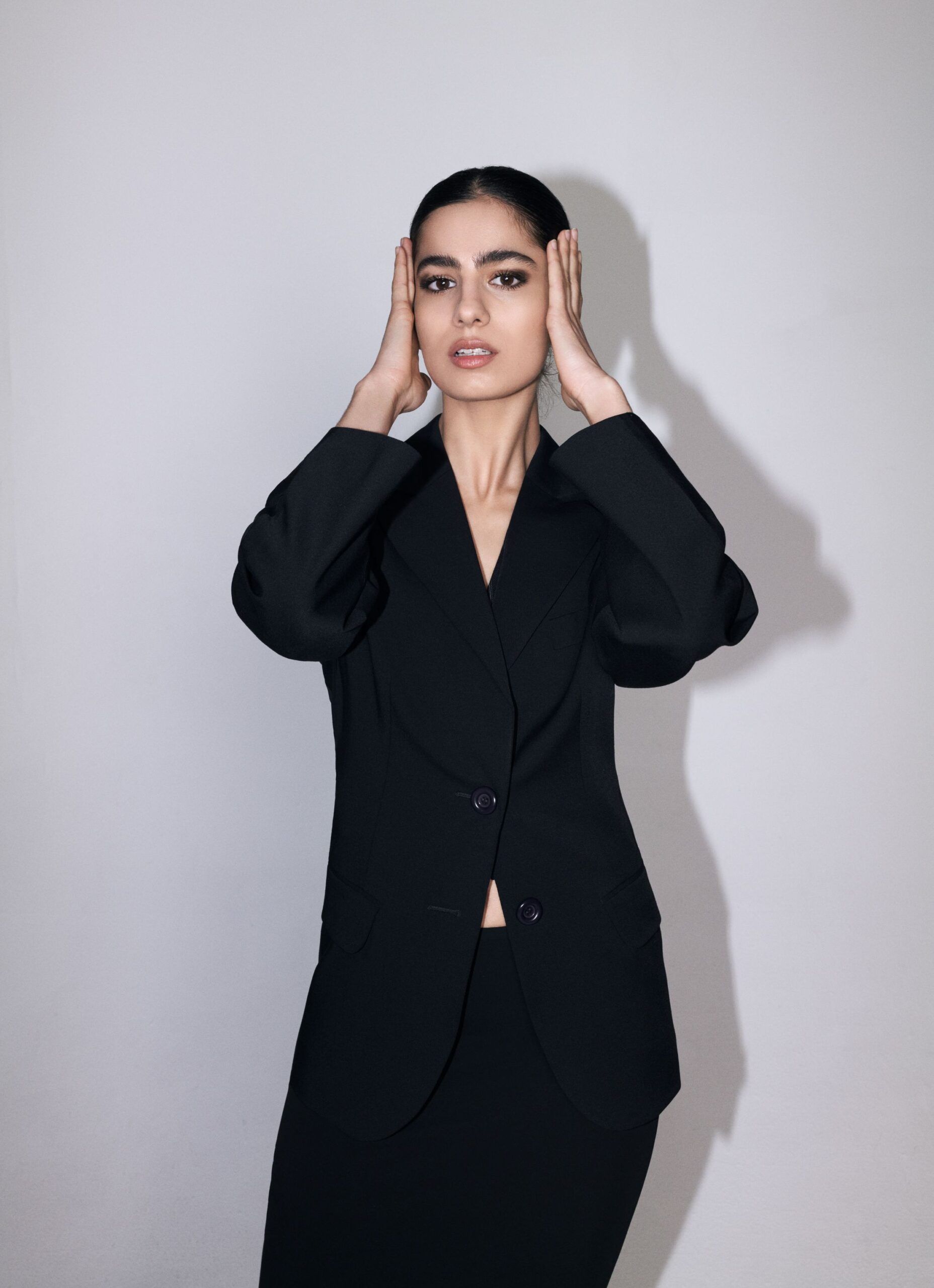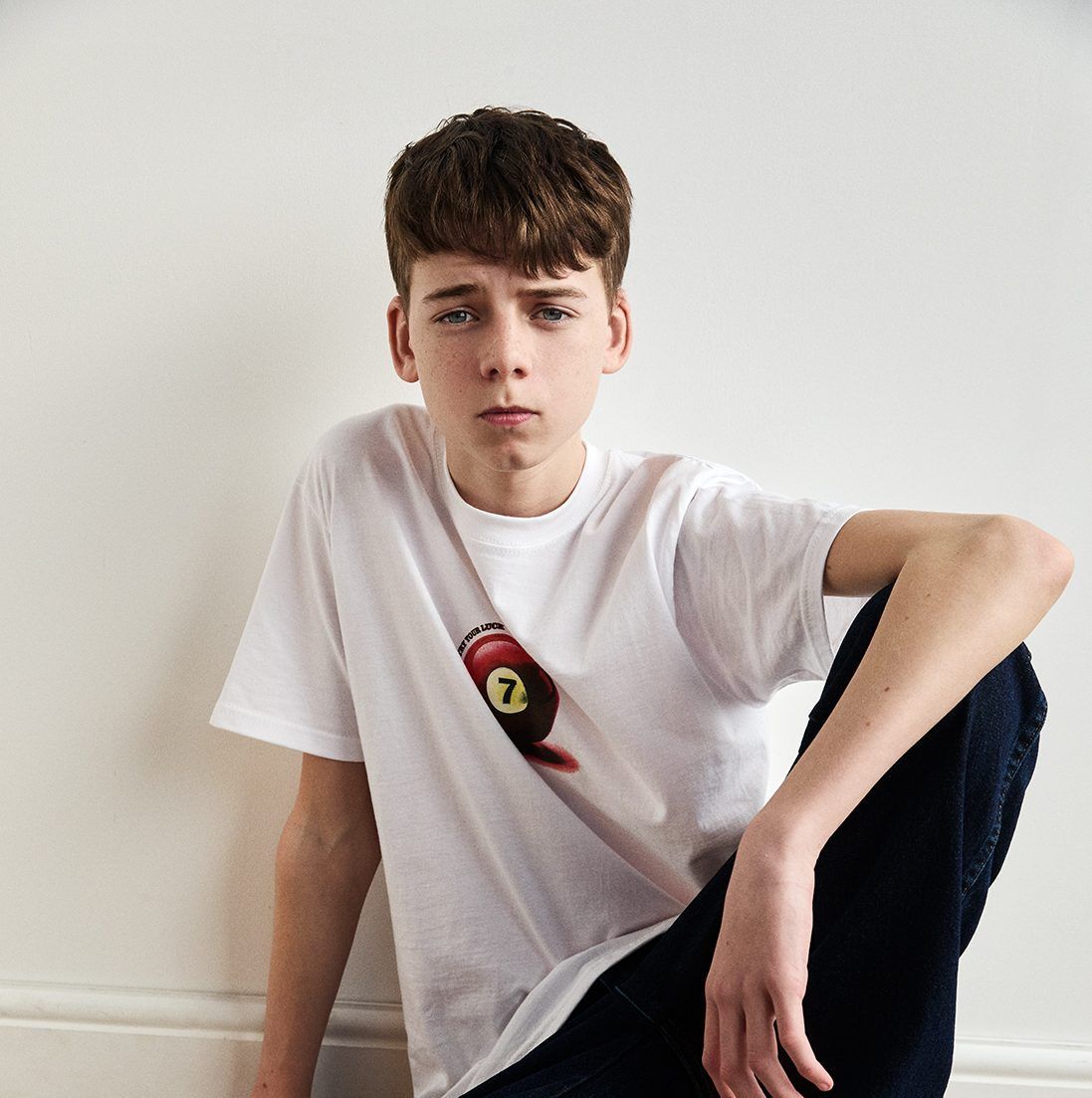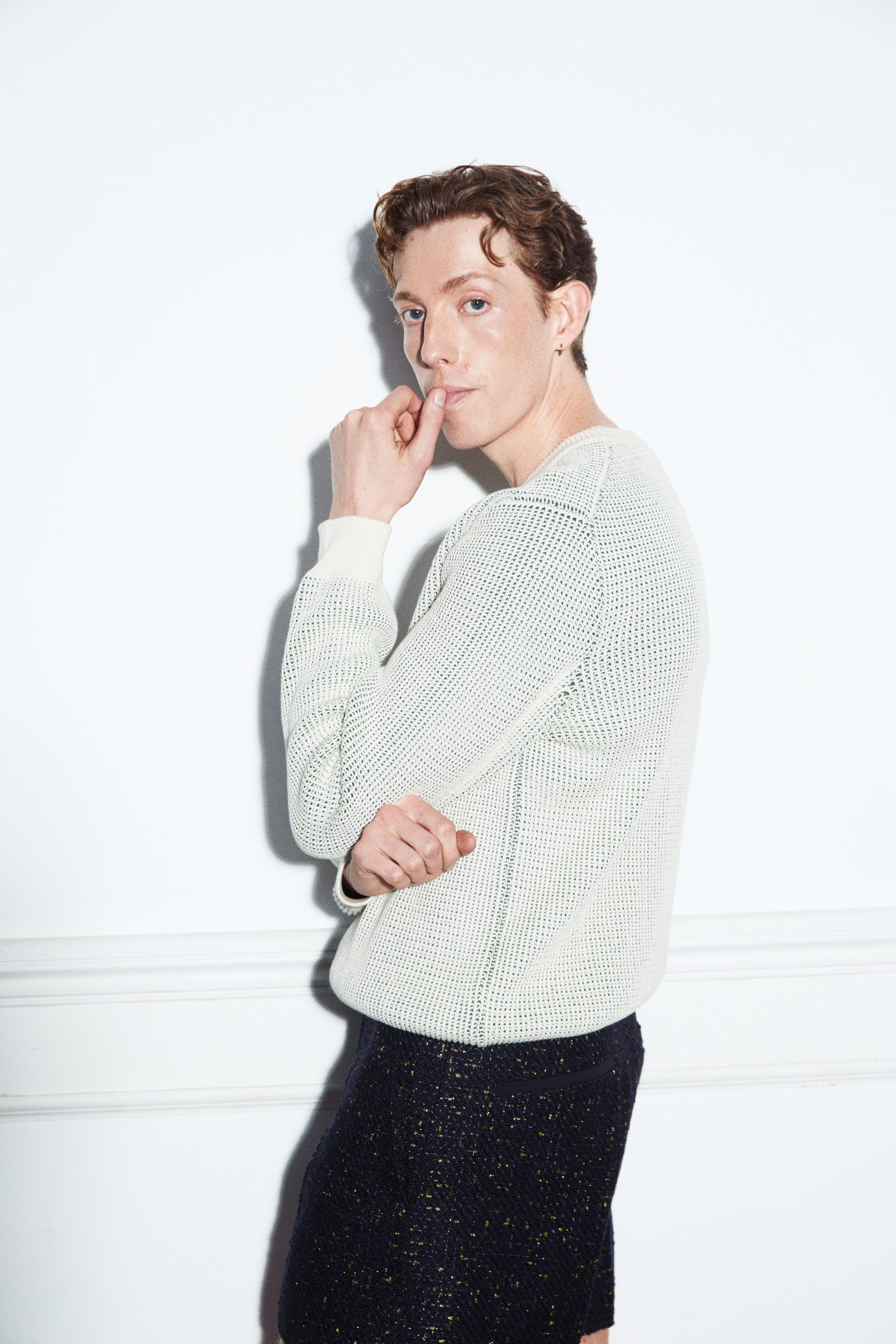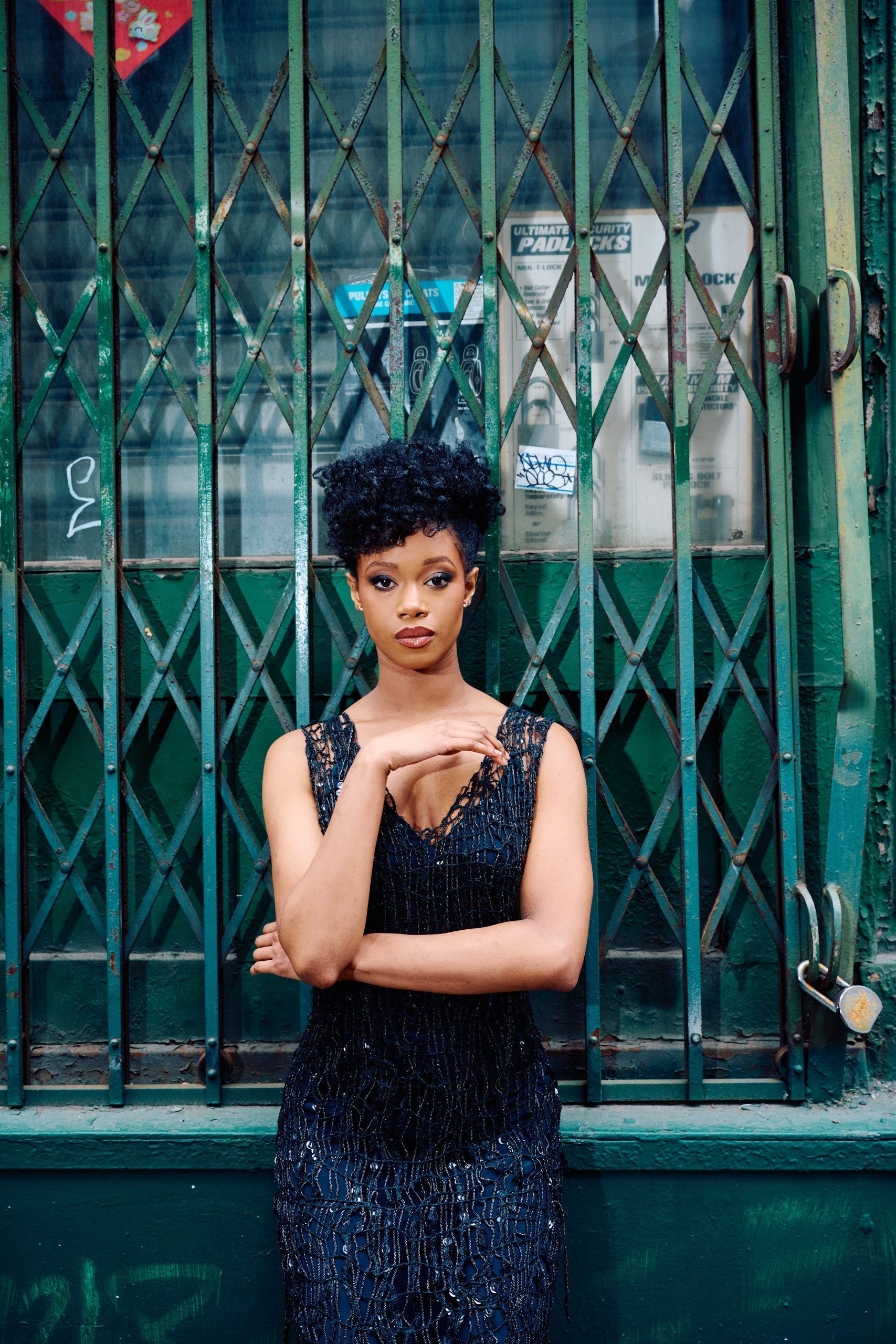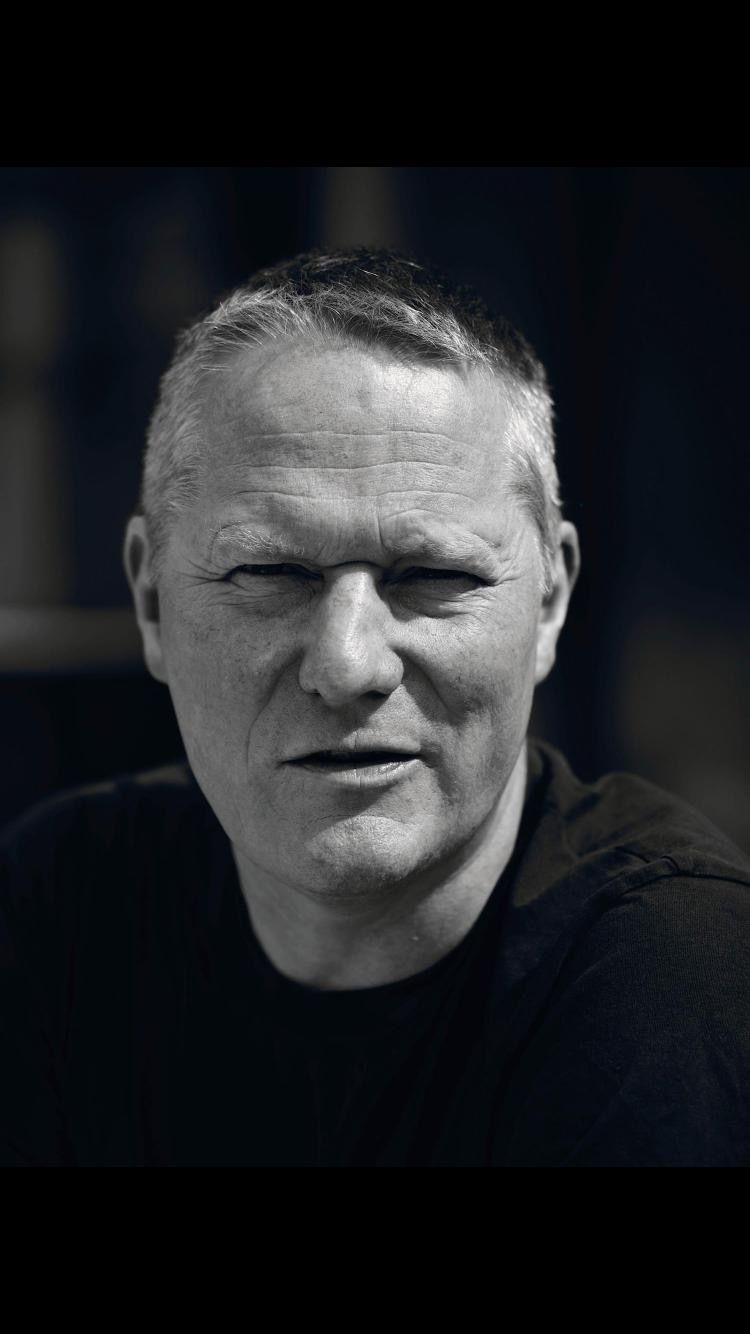Not every actress gets her breakout role in a Peter Kosminsky project, but rising star Hannah Khalique-Brown is just that good.
Sometimes life imitates art and sometimes art imitates life. In Peter Kosminsky’s latest project The Undeclared War, that sentiment is conflated into one. Why is that the case? The Undeclared War is a cyber-thriller that, despite being filmed over a year ago, is more relevant now than ever. Its star is actress Hannah Khalique-Brown who you likely haven’t heard of… yet. Despite being fresh into her acting career, it’s more than apparent that her ability to capture an audience with such an ease is why she was Kosminsky’s top pick — despite having literally one single acting credit to her name.
1883 Magazine’s Kelsey Barnes chats with Hannah Khalique-Brown about filming The Undeclared War, what it was like sending 1000+ emails to get an agent, finally breaking into the industry, and more.
You just graduated Kings College in 2020 — but you chose to pursue English Literature rather than drama. Firstly, what was the ‘aha!’ moment that made you want to be an actress? How do you think your education in English Lit has helped with your work in acting?
I think I’ve wanted to be an actor since I could walk – I don’t remember the first ‘aha!’ moment but the desire to be a performer has been there for as long as I can remember. I do have a couple of pretty formative moments that have stuck with me though, which really solidified my ambition. One was at a summer camp for drama at my school when I was about 9 years old, and I performed alone on stage for the first time in my life and felt more alive and myself than ever before, and instantly knew this was what I had to do with my life. After that performance, I told my parents I was going to be an “artist” when I grew up, which is a ridiculous thing for a child to say, but has remained by ambition ever since! Another moment was playing Alice in the Boys’ school production of Alice In Wonderland age 13. Again, it was the happiest I’d ever been and just reinforced to me that this was the only option for my life.
As for doing an English degree rather than acting or drama, I genuinely just wanted to keep learning and knew I wasn’t ready for drama school. I think I learned more that related to acting in GCSE and A-Level English actually, learning script analysis whilst studying plays. I think the analytical side of English, as well as the love for language and words that it encourages has been a great foundation for prepping a script. And understanding storytelling has definitely helped a lot. But I’ve also had to unlearn a lot of academic tendencies as well – no one wants to watch intellectual acting! It’s gotta be visceral.
I read you sent over 1,000 emails to agents asking for representation. Although rejection is part of the job, what did that experience teach you?
Yes! Years ago I used to email around 180 casting directors and agents to come and watch me perform about 3x a year whenever I was in a new fringe play! I just needed someone to come and see me perform, and that would be my chance. When you don’t have any real way into the industry, you gotta hustle. Honestly, I didn’t take it as rejection and wasn’t really hurt by not getting replies. People assume when you say “no one replied” that you’re mad about it, but I really wasn’t! I found it frustrating in that I knew if they saw me perform, then they’d be interested, but I kind of always expected to not get any replies because I know how unlikely it is that they’ll have time to read the email, let alone come and see some fringe play above a pub. But that didn’t seem a big enough reason to me not to try. I’ve learned more about rejection over the last few years whilst working as an actor professionally and auditioning on a regular basis.
Most of all I’ve learned to really not see it as rejection! I’ve kind of eliminated the idea of “getting the job” being a goal when I’m auditioning. The end result is sharing work I am proud of, be that in a self-tape, an in-person audition, or even final rounds. Getting the part just can’t be the goal. It just has to be to work hard on the material and share it – and that’s really it. I think fighting so hard for so many years to even get into an audition room when I didn’t have an agent and no one came to watch me made me really appreciate the privilege of having someone want to sit and watch you work – even if it’s for 2 mins whilst they watch your self tape or for 20 mins in an audition room. Those years of feeling like I’d chop an arm off to even be seen for 30 seconds make me really appreciate the joy of sharing my work with someone who actually wants to sit and watch what I can do for a few mins. That gives me enough fulfilment for me to not hold on to the idea of “getting a job” and actually just appreciate the act of working and sharing, and so rejection just doesn’t really come into it anymore!
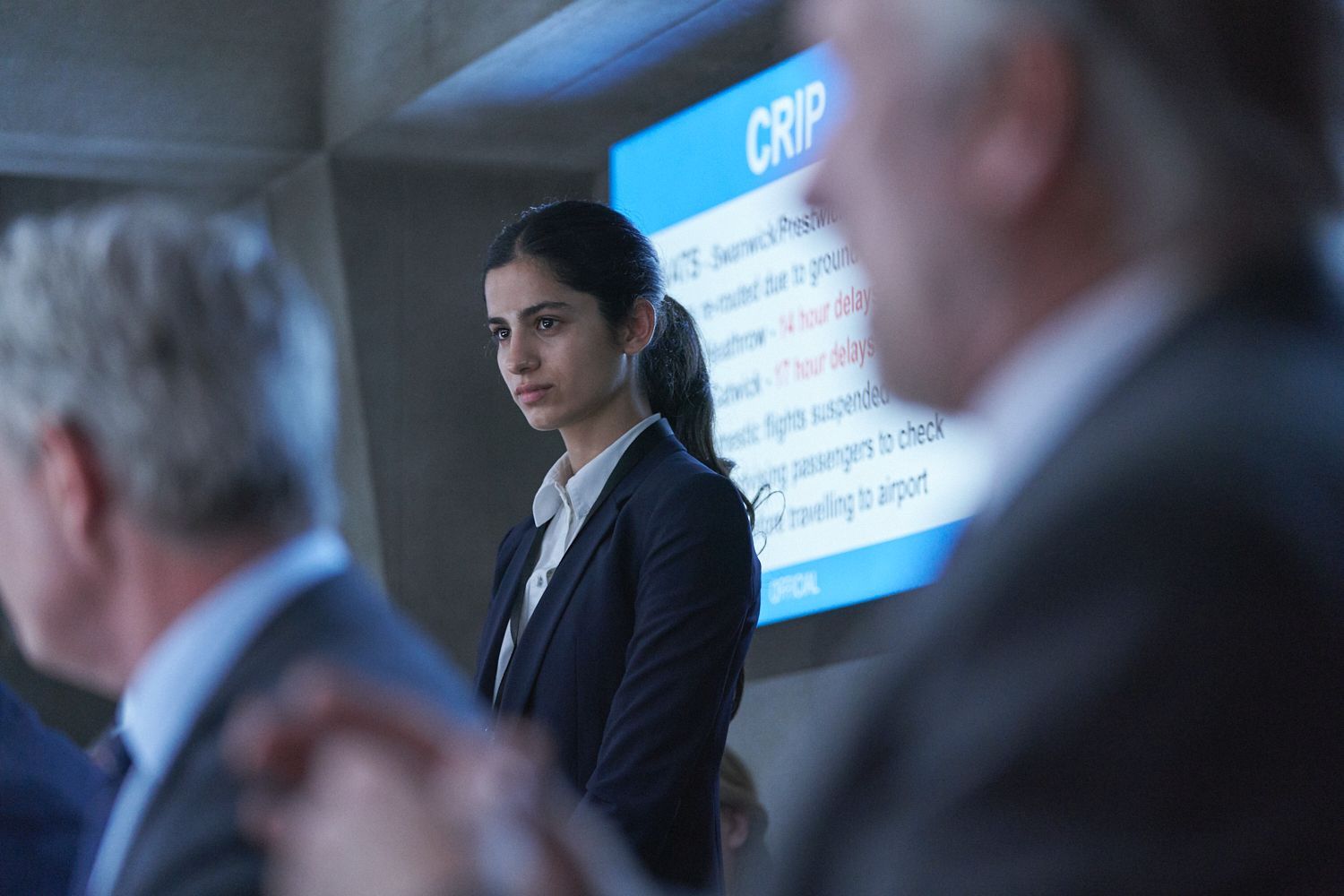
Your first credit was in 2020 with Tin Luck which sounds like an incredible short. I read it was shot on 35mm in one continuous take. Can you tell me a bit about your experience on that set, especially given that it was your first role?
It’s so lovely to be asked about Tin Luck, it was a really special project. It was my first screen role, having only worked on stage, and was an incredible experience. I got the part from my (now very good friend) Buket Komur, who was already attached to the project and had met me at an audition where we got on so well in the waiting room that we swapped numbers! The creator/director Beatrix Blaise was looking for someone to play Leila and Buket recommended me – which was so kind, so I auditioned, and it really opened a door for me. Beatrix developed the film within the community of the Maiden Lane estate in Camden where it’s shot, so most of the team was made up from the community, including most of the actors. She let us improvise and have so much artistic autonomy, it was amazing. I learned so much on that job and it holds such a special place in my heart.
And yes, it was shot on 35mm, on a 40ft technocrane, all in one take! It was mad – we only had 3 takes – that’s literally 3 goes at the whole film. We rehearsed in the morning, and then shot it three times throughout the afternoon and evening, as the sun gradually went down into golden hour. It was kind of terrifying knowing that if we messed up, that’s a take we don’t get back whilst working on film! But also made it really, really alive. It was a magical day, me, Buket, Sam and Beatrix all still say how special it was. Beatrix is a genius – seriously.
Your first major role is playing Saara in the upcoming TV thriller The Undeclared War. Can you tell me a bit about the show and your character?
The Undeclared War is a 6 part thriller about cyberwarfare. Although from my perspective, I think I’ll always see it as Saara’s story – having lived it through her eyes! Saara is a brilliant young woman – I’d call her a genius – a coding prodigy. She wins a place doing a year’s work experience at GCHQ after her second year at uni, and on her first day, the UK is hit with a massive cyberattack on the internet. She’s thrown into the frontline of this, and at the same time endures crisis in pretty much all aspects of her personal life, as well as on a national and global scale. It asks how someone brilliant and flawed survives when they are put through some of the most intense things they will ever experience all at once. It’s me, Simon Pegg, Mark Rylance, Adrian Lester and more dodging a LOT of thrilling plot twists and cliff hangers and following Saara navigating crisis in her work, her family, her relationships, her heart, the country and the whole world.
What attracted you to the show? Was it the character, script, who was involved in the show, etc?
I mean, naturally, when the self-tape request email comes through from your agent and you see Peter Kosminsky is creator, you’re like okay – I’m interested! But then seeing this character I’m going up for being the series lead, and being this brilliant young woman, and being Asian. It was just mad. I didn’t think that could happen at this point in my career. I was lucky enough to get sent quite a few scenes to self tape right at the beginning and the writing was just flawless. I was instantly in love with Saara, with this project. I think I developed a pretty profound connection with her from the outset and it just grew and grew the more background and scenes I got. I don’t usually get attached to characters as, like I said, I try to have a pretty chill mindset about auditioning and try not to look further than just sharing my work, but I couldn’t stop thinking about her. She was just written to life so perfectly, she really spoke to me and I just knew I loved her. And the more of the script/story I was privy to throughout audition, I was just like… wow, this really is one of the most astonishing pieces of television writing… ever.
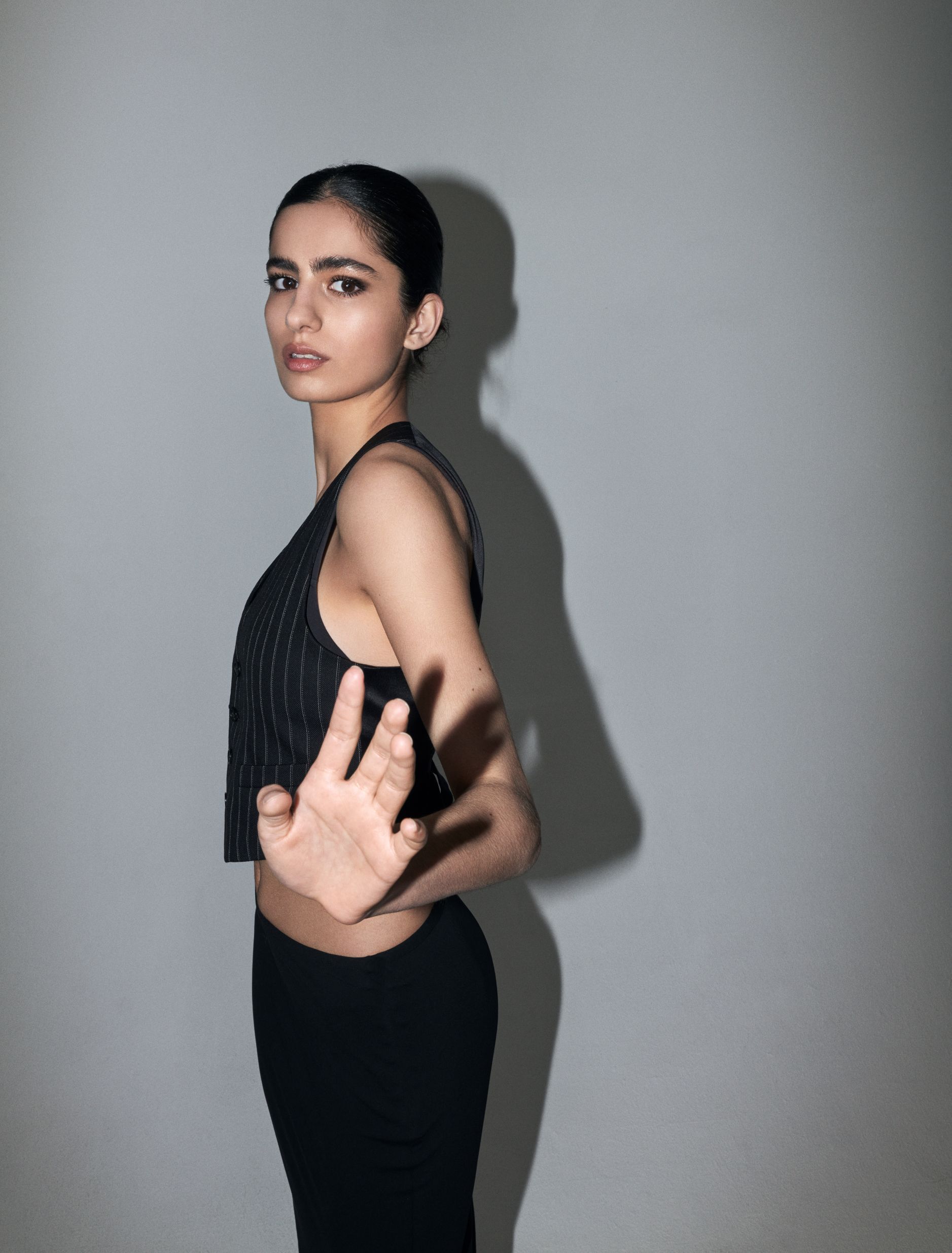
Saara is passionate about the threat of attacks and wants to help defend her country, but it’s not something that her family supports given that the GCHQ is an organization that they feel monitors them unfairly. What was it like working through those incredibly topical themes that mimic what it’s like for British-Muslim people?
I honestly think Saara is mostly just focussed on the puzzle in front of her. Peter tells a much wider story, about all the conflicting views and beliefs about GCHQ and surveillance, from lots of different people – from her boyfriend James to her brother Sajid, and her Dad Abu, who completely supports her decision to work at GCHQ and tells her not to tell the rest of the family because they wouldn’t understand. But for Saara, it’s the code, the never ending puzzle that calls her, that grips her, that she thinks about all the time. I don’t actually think she engages that widely with the political or cultural consequences of things she’s doing (you see this play out really clearly in a later episode in a scene with her brother where they discuss the British-Muslim experience) – it’s the next step of the puzzle that always has her attention. And that could definitely be seen as one of her flaws – and Saara is a deeply flawed character – but it’s also one of the things that sets her apart in what she does. Peter definitely explores all of these very topical themes and cultural discourse in the show, but whilst I was playing Saara, I honestly just zoned into her frames of thinking which are almost always to do with the puzzle in front of her – be that a coding problem, or a person, or a situation – sometimes to her detriment, sometimes to her benefit.
This show is more timely than ever, maybe even more so than when you filmed it just last summer. Has it been interesting to see issues that are prevalent in the show play out in real time?
I would say it’s mostly been terrifying to see some of these things play out. The show started being made with Peter’s research and writing about 5 years ago I believe, and we shot it in 2021, having no idea that a year later so much of it would have become scarily relevant to current affairs. We knew from Peter that everything within cyber that happens in the show either has happened or could happen in the future, but actually engaging with that as a reality is a whole other thing. It’s a very unsettling feeling.
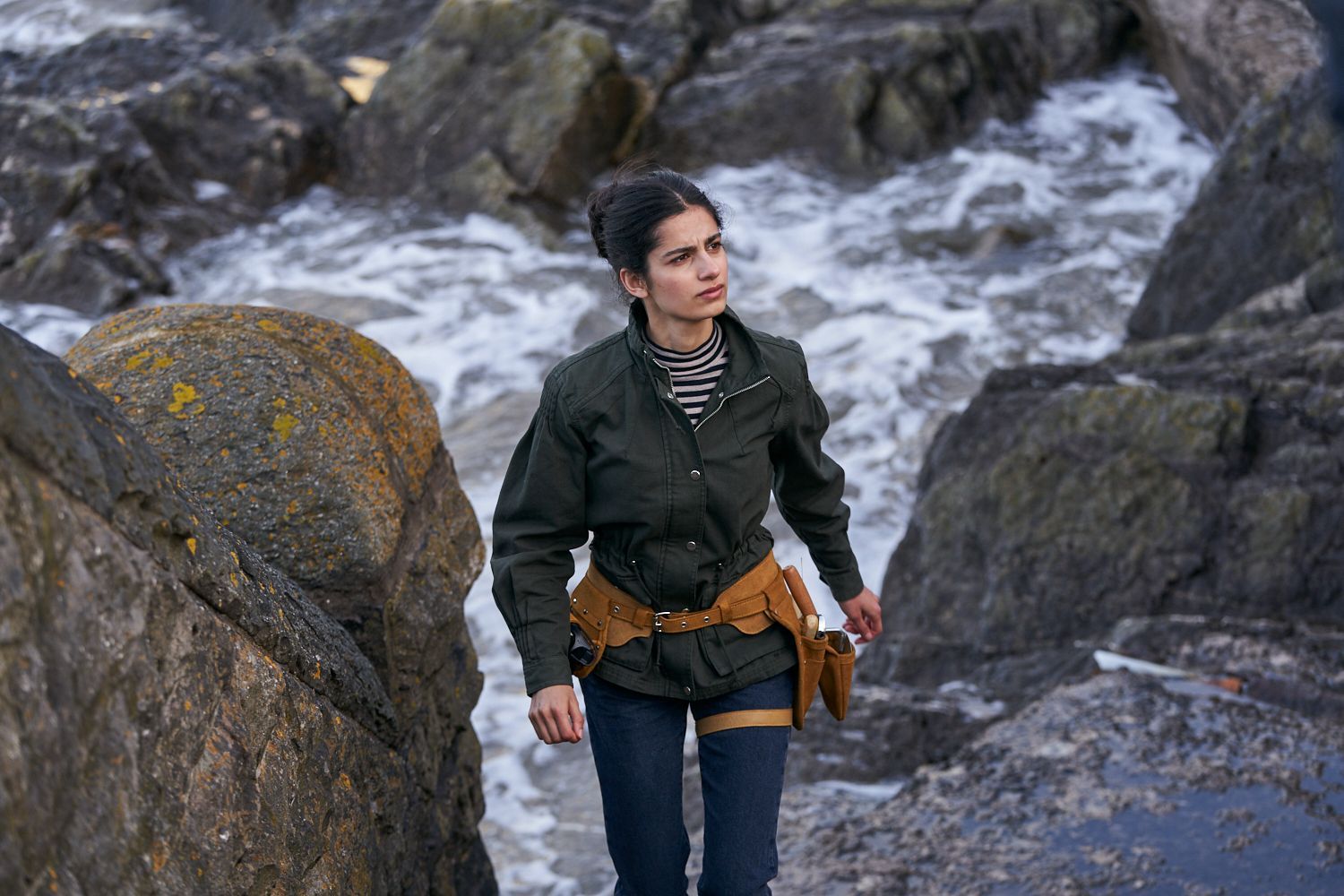
Has the show changed the way you view your own online activity?
I definitely learned that it’s a lot easier to be hacked than you think. And that if people want to find something out about you, and they know how to, they can. I guess in that way it just made me a little more careful, but to be honest, I don’t know who is going to be interested in my online activity because I’m slightly embarrassed to say it’s pretty much limited to watching other actors’ interviews on YouTube. It’s more changed my views about cyber warfare at large, and the cyber activity of global superpowers, and how almost all of the general public know nothing about this actual undeclared war going on beneath the surface, all the time, in the cyber domain.
Was there anything specific you did to flesh out your character? Did you read any books on cyber attacks/threats or did you speak to anyone who works in the field?
Great question! Most of the information about the wider cyberattack storyline, cyber warfare, and intelligence agencies I got from Peter, who is a complete fountain of knowledge and is well known for his extensive research, so I really relied on him and all the work he had done over a 2 year period to research the project. But as I mentioned earlier, Saara kind of insulates herself from the wider context of what she’s doing, and is just so preoccupied with the code, the puzzle in front of her most of the time. I mentioned that Saara is a genius, and I don’t use that lightly – she really is a prodigy at what she does and is ten steps ahead of anyone around her – even at GCHQ. If Saara is a coding genius and works as probably the youngest person in GCHQ as an expert hacker, then I really had to get my head round coding and how her mind works.
So I taught myself two programming languages – JavaScript and C++, in the two months I had between getting the part and starting shooting, worked on some small coding projects and watched a lecture course for reverse engineering (the work Saara does in GCHQ) as well. It was amazing learning to code for this part – I really never thought I could do that kind of thing but I absolutely loved it. That was probably the most all-consuming thing I did to flesh out Saara, because I knew I had to learn how to think like her. She’s always thinking in puzzles. And then aside from that I did what I always do – build a whole other human life and flesh it out with writing her childhood, memories, their whole history – everything. Prepping for Saara was such a joy.
You worked quite closely with Mark Rylance; his character is a veteran analyst and acts like a pseudo-father for Saara when she’s longing for one. What was it like working with Rylance?
Working with Rylance was insane. I can never quite put into words how magical he is. He is just the most astonishing actor. And the most gentle, kind, lovely man. Those weeks working with him were some of the best weeks of my life. I learned SO much from working with him – just watching him. It was a total masterclass. I sobbed in my trailer for about 20 mins after our final scene, just so overwhelmed by how special the experience had been, and how grateful I was to have experienced it. Working with Mark is like living in a dream. He’s got this incredible ethereal quality, like a fairy. I have this notebook that I take everywhere with me, where I write everything I learn or think about acting every day, and on set I had it with me all the time to take notes and document the whole process for myself. Usually I would take notes in the green rooms, or my trailer, in the car journey home and before bed. But when I was working with Mark, I just got my notebook out right there on set, and asked him questions and unashamedly just wrote down what he said! I thought, I am probably never going to get this chance again – I am not going to miss out on capturing some of this other-worldly wisdom. And I return to his words constantly. I think they’ll keep inspiring me forever!
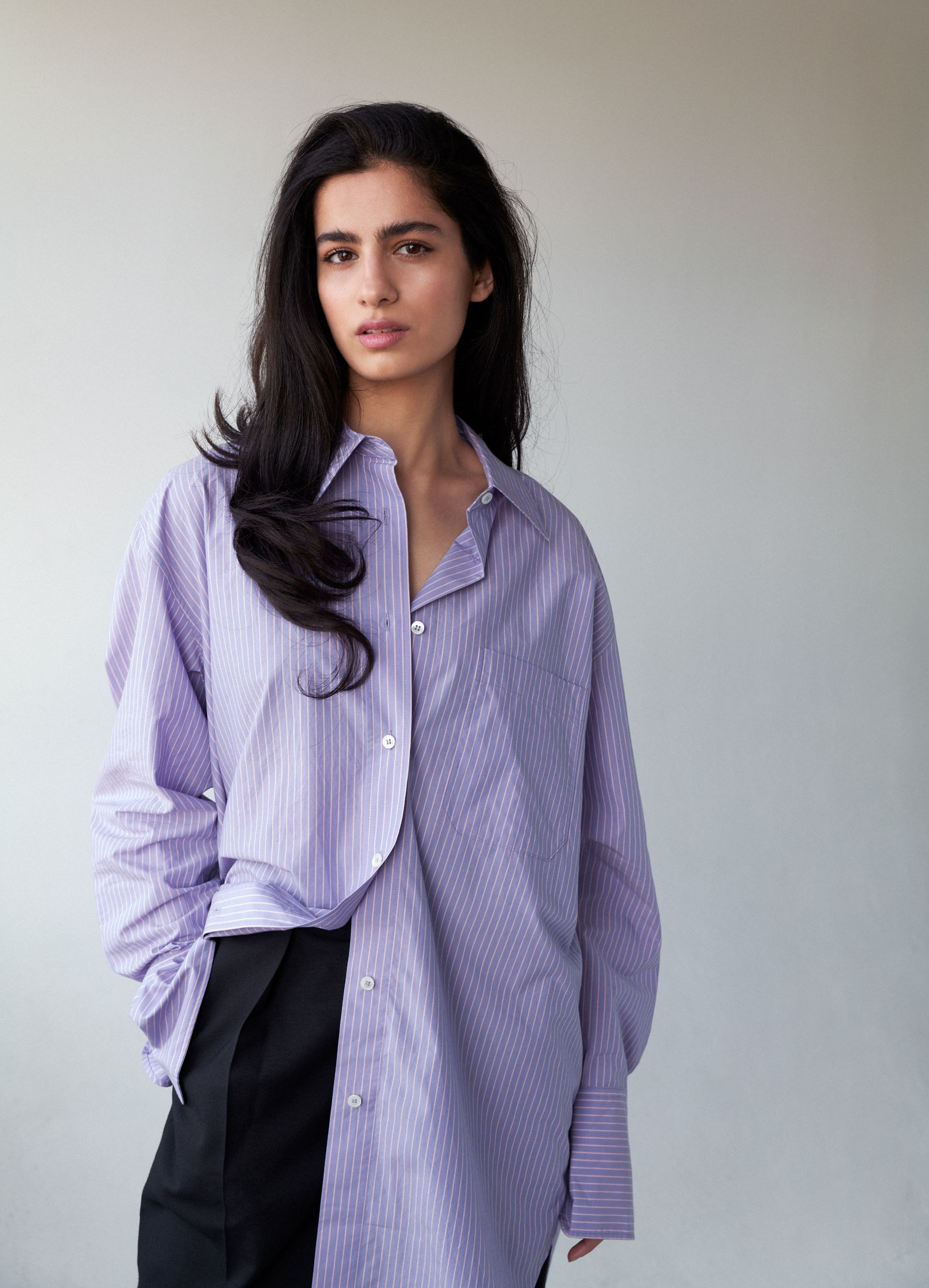
Was there a scene in particular that sticks out to you when you think back to your time filming?
Such a great question and so hard to answer! So many of the scenes do to be honest – it was such an emotionally demanding piece and we touched on some magic a few times. All of my scenes with Mark stand out, of course. Everything with Simon Pegg too – I grew up watching his films, it was so amazing to work with him and he made me laugh so much – which I really needed by week 16, running on very little sleep and emotionally exhausted! My scenes with Nitin Ganatra, who plays Saara’s dad were also very special, and some very traumatic (but in an… artistically fulfilling way?). Gavi Singh Chera who plays Saara’s brother Sajid was a wonder to play opposite – he has a very similar quality to Rylance – a few of those scenes really stayed with me. I think one of the most powerful ones was a scene between Saara and her boyfriend James, played by Ed Holcroft. I don’t want to give any spoilers but there’s a very intense scene in ep6 where we were just struck by lightning in terms of the rawness of the emotion which flowed through that scene, from the first take to the last. I’ve never experienced anything like it. It was magical. It took everyone about 20 minutes to recover from that scene… It was very special. I think about it a lot.
Knowing what you do about Saara’s arc in the series, what advice would you give to her?
God, that’s a great question. That’s really hard! In a way, I don’t want to give her any advice because from a storytelling point of view, even all the mistakes she makes are part of why the story is so great. But girl to girl, I would just tell her to cut herself some slack. To be less hard on herself. She is extremely tough on herself, internally, and it’s a lot for one person to put on themselves. She doesn’t deserve it.
The Times said “there are few experienced actors who can share a scene with Rylance and not disappear” and that you hold your own as Saara. As an actress just starting out in her career, what do comments like that mean to you?
Yeah, I freaked out when I read that, haha! It’s a bit crazy really, obviously very kind of the journalist Stephen Armstrong to write that. It means a lot, to be honest. In general, I am going to try and not take to heart what I read online or in the media, even if it’s good stuff. Because it probably won’t make me a better actor, and could inflate my ego or whatever which is really not useful. And I am planning to avoid negative comments like the plague! But I have to say it was really nice to read that one. I feel like I have to fight somewhat to be taken seriously, as a young, brown woman (a feeling I share with Saara!) so it was really validating to hear that it seemed I could hold my own playing opposite Mark. It’s pretty scary going into a project of this scale and reach having never done anything like it before, and I have been worried about what being exposed to other people’s opinions about me might feel like, so to have that comment early on reminded me that I am proud of my work. Whatever else might be said about me, good or bad, I won’t let that change.
Lastly, if you could manifest anything for yourself this year what would it be?
More work? Almost feel embarrassed to admit that! And better nail beds. Please, please, universe. Give me better nail beds.
Interview Kelsey Barnes
Photography Joseph Sinclair
The Undeclared War is airing now on Channel 4.

